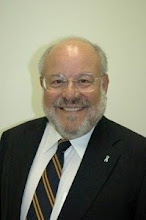The World Health Organization projects that this year cancer will become the world's leading cause of death. Why the epidemic of cancer? Death certificates in the United States show cancer as being the eighth leading cause of death in 1900.
Why has it skyrocketed to now surpass heart disease as number one?
Is it because people live longer and have to die of something? That's a factor, but not the prime reason as reflected by the jump in age-adjusted cancer being far above what could be expected from increased longevity. And it certainly doesn't explain the steep hike in childhood cancers. Is it lifestyle, diet and genetics, as we have often been told? They are factors, but not key reasons.
The cause of the cancer epidemic, as numerous studies have now documented, is largely environmental--the result of toxic substances in the water we drink, the food we eat, the consumer products we use, the air we breathe. (Some of the pollution is voluntarily caused--by smoking. But most is involuntary.)
As the President's Cancer Panel declared in May, in a 240-page report titled "Reducing Environmental Cancer Risk: What We Can Do Now," "The American people--even before they are born--are bombarded continually with myriad combinations of these dangerous exposures." It said: "With the growing body of evidence linking environmental exposures to cancer, the public is becoming increasingly aware of the unacceptable burden of cancer resulting from environmental and occupational exposures that could have been prevented through appropriate national action."
It pointed to chemicals and radiation as major causes of cancer and stated: "Cancer continues to shatter and steal the lives of Americans. Approximately 41 percent of Americans will be diagnosed with cancer at some point in their lives, and about 21 percent will die from the cancer. The incidence of some cancers, including some most common among children, is increasing...The burgeoning number and complexity of known or suspected environmental carcinogens compel us to act to protect public health."
The panel urged President Obama "most strongly to use the power of your office to remove the carcinogens and other toxins from our food, water, and air that needlessly increase health care costs, cripple our nation's productivity, and devastate American lives."
In 1980, another presidential panel, the Presidential Toxic Substances Strategy Committee, came to the same conclusion. It declared: "Of the hazards to human health arising from toxic substances, cancer is a leading cause of concern. Cancer is the only major cause of death that has continued to rise since 1900. It is now second only to heart disease as a cause of death... Some of the increase in cancer mortality since 1900 is a function of the greater average age of the U.S. population and the medical progress made against infectious disease. But even after correcting for age, both mortality (death) rates and incidence (new cases) of cancer are increasing. Many now believe that environmental (nongenetic) factors--life style and work and environmental exposures--are significant in the great majority of cancer cases seen."
Meanwhile, through the years solid science done by independent researchers -- not those taking money from the chemical or nuclear industries -- has extensively documented this cancer/environment connection.
"The evidence is there that the majority of cancer cases are environmentally caused," says Dr. David Carpenter, founding dean of the University of Albany School of Public Health and now director of the Institute for Health and the Environment there. Among the research he points to is a 2000 study involving examining health records of 44,788 pairs of twins in Sweden, Denmark and Finland. If genetics were the main cause of cancer, if one twin developed cancer the other probably would, too. This was not found. The study, published in the New England Journal of Medicine, concluded that "inherited genetic factors make a minor contribution" in most cancers. "This finding indicates that the environment has the principle role in causing sporadic cancer."
Dr. Samuel Epstein, professor emeritus of Environmental and Occupational Medicine at the University of Illinois School of Public Health, in his book The Politics of Cancer concludes that cancer is a preventable disease "caused mainly by exposure to chemical or physical agents in the environment." The huge problem, he said, is how "a combination of powerful and well-focused pressures by special industrialized interests, together with public inattention and the indifference of the scientific community" has warped public policy and thwarted "meaningful attempts to prevent the carnage." Dr. Epstein now chairs the Cancer Prevention Coalition committed to eliminating those toxins that are causing the cancer epidemic (http://www.preventcancer.com).
The initiative, Prevention is The Cure, was founded by breast cancer survivor Karen Joy Miller and on its website,(http://www.preventionisthecure.org/), declares that four decades have passed, "and the wake-up call put forth by Rachel Carson" in her book Silent Spring "and other activists has been blocked by powerful political interests that profit from pollution."
These powerful interests have long had allies in government. The late James Sibbison, who went from being a reporter for the Associated Press to press officer at the Environmental Protection Agency, would tell the story of how immediately after Ronald Reagan became president, orders were given to the EPA press office "never to use the words cancer-causing in front of the word chemical." Now the number of chemicals in commercial use in the U.S. totals 80,000. The EPA under the Toxic Substances Control Act of 1976 has been required to assess all of them. In over 30 years it has gotten around to examining 200.
The poisoning--and consequent cancer--is not necessary. The report by the President's Cancer Panel emphasize how "the requite knowledge and technologies exist" to provide safe "alternatives" to cancer-causing agents.
But this doesn't suit those doing the polluting--who have such a hold on government.
Subscribe to:
Post Comments (Atom)


No comments:
Post a Comment